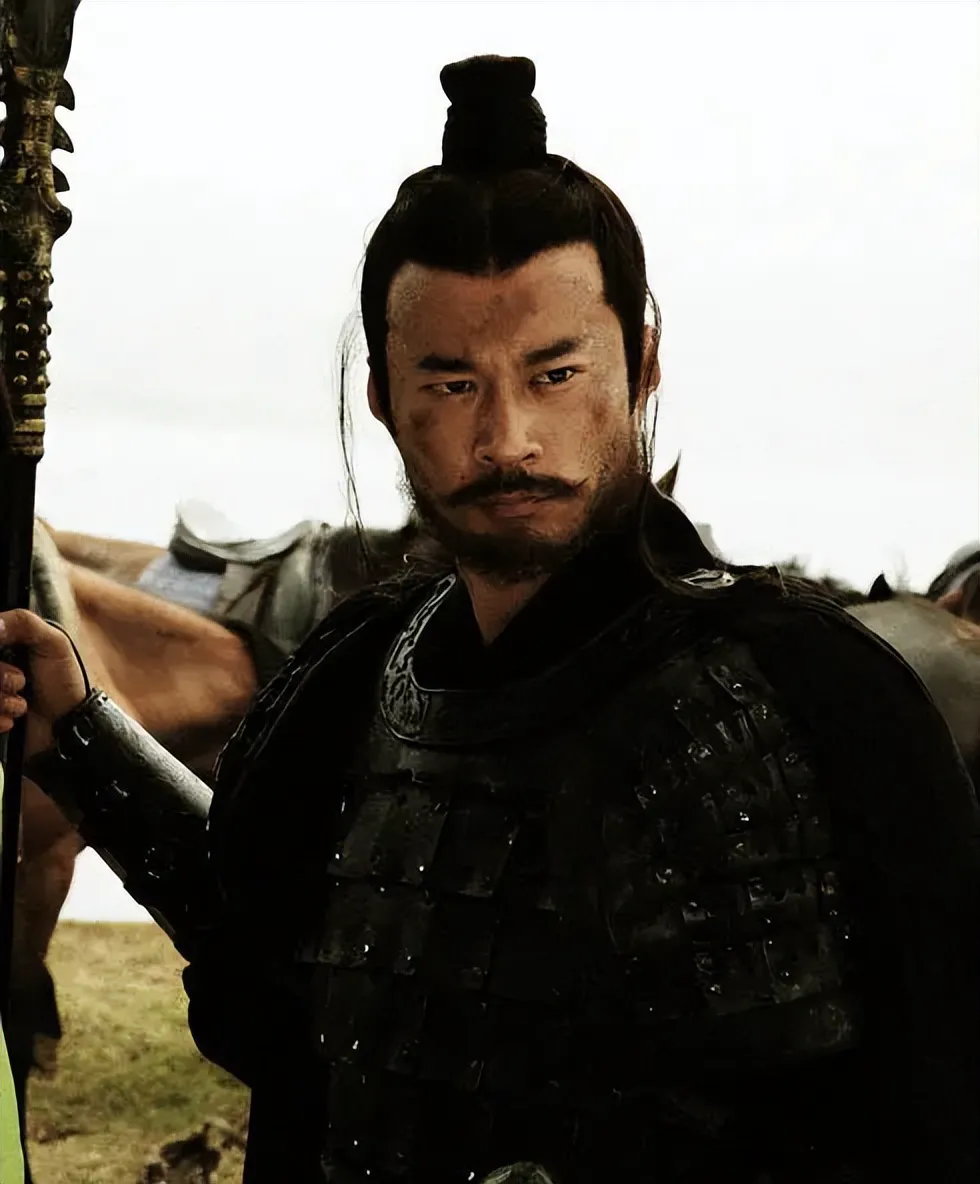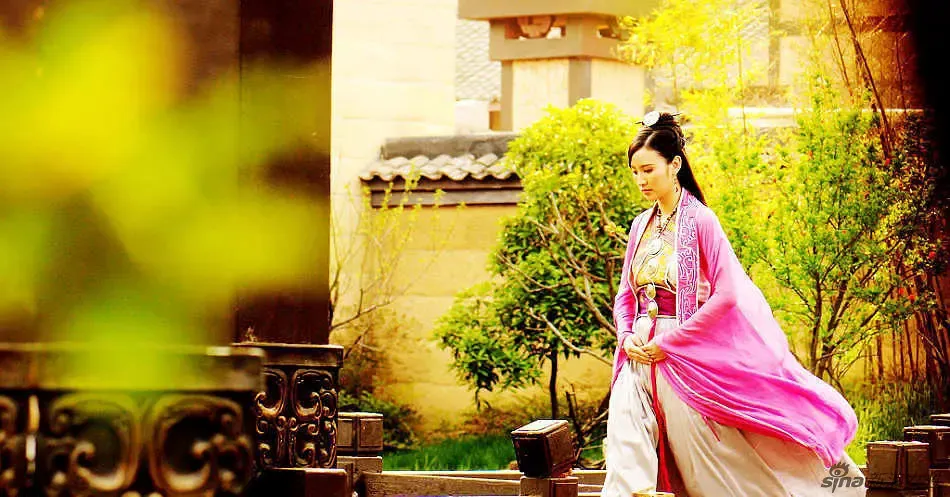It’s been 12 years since “The Myth,” starring Hu Ge, first aired. Originally conceived as a television adaptation of Jackie Chan’s 2005 film of the same name, the drama, while perhaps not surpassing the film in classic status, was undoubtedly a phenomenal hit in China. It stood out as a time-traveling idol drama that captured the hearts of many.
Many scenes from the series left a lasting impression on viewers. From the beloved Lü Su, who exited the stage after just five episodes, to the love story of Yi Xiaochuan and Yu Shu, and the romance between Yu Ji and Xiang Yu, even the relationship between Lü Zhi and Liu Bang, evolving from her initial affection for Yi Xiaochuan, were all well-crafted.
Moreover, the show introduced a complex antagonist in Gao Yao, portrayed by Zhang Shi, who remains one of the most memorable villains in Chinese historical idol dramas. Over time, while many plot points have faded from memory, the character of Zhao Gao has only grown more iconic.
“You’re so noble, so extraordinary!” The characters of Yi Xiaochuan and Gao Yao taught many viewers about the harsh realities of life.
The Shifting Sands of Character Perception: Why Yi Xiaochuan Faces Criticism While Gao Yao Gains Popularity
Like many viewers, I once perceived Yi Xiaochuan as kind and Gao Yao as repulsive. Now, Yi Xiaochuan seems like a hypocrite. What has caused this shift in perception?
Yi Xiaochuan: The Overpowered Protagonist

From the moment he time-travels, Yi Xiaochuan encounters historical figures like Xiang Yu, learns martial arts, and rescues the pure-hearted Lü Zhi and Lü Su. His good looks make him a welcome guest everywhere he goes. Even when he faces adversity, like encountering Liu Bang or contracting the plague, he’s saved by plot armor, such as the tiger amulet or Lü Su’s unwavering devotion. He even meets a deity who invents the elixir of life!
Later, he’s recognized by a military officer while building the Great Wall, impresses Qin Shi Huang by scaring away a tiger, and befriends historical figures. Every beautiful woman he meets falls in love with him, including Lü Su, who dies for him without regret.
Gao Yao’s Transformation: The Harsh Reality of Survival
Gao Yao represents the average person’s experience in time travel. He’s forced into hard labor, castrated, and vows to become Zhao Gao, eliminating the original in the process.
Even as Zhao Gao, he remembers his bond with Yi Xiaochuan. However, Yi Xiaochuan only sees Gao Yao’s ambition and betrays him by warning Liu Bang, the same Liu Bang who caused Gao Yao’s castration.
Gao Yao is a tragic character who starts as a loyal friend. He helps Yi Xiaochuan when he’s sick and covers for him when he steals the night-luminescent pearl. Until he becomes Zhao Gao, Gao Yao is the better person. Yi Xiaochuan only criticizes him after his transformation, conveniently forgetting his own flaws.
Gao Yao’s famous line reflects how an honest person is forced into villainy by reality. Many viewers now see Yi Xiaochuan as the idealized time traveler, while Gao Yao is the realistic one, enduring humiliation and using his modern skills to climb from the bottom.
The 12-Year Shift: Why the Change in Perspective?
The reversal in opinions stems from the audience’s growth. As children, viewers focused on right and wrong. As adults, they prioritize self-interest. “The Myth” exemplifies the contrast between a naive protagonist and a character driven to villainy by circumstance.
The director deliberately portrays this contrast. Yi Xiaochuan befriends Xiang Yu and Liu Bang, while Gao Yao becomes a cook.

When Yi Xiaochuan contracts the plague, Lü Su seeks Gao Yao’s help. Later, Liu Bang betrays them. Yi Xiaochuan becomes a general, while Gao Yao suffers as a laborer.
Gao Yao volunteers to become a chef, only to be castrated. He uses his culinary skills to serve Hu Hai, marking the start of his rise.
Gao Yao believes in mutual support, especially since Yi Xiaochuan brought him to the past. However, Yi Xiaochuan criticizes Gao Yao’s transformation, triggering an explosion of pent-up emotions.
Instead of guiding Gao Yao, Yi Xiaochuan abandons him. His claims of not interfering with history ring hollow, especially considering his involvement with Liu Bang. Yi Xiaochuan’s hypocrisy contributes to the tragic fates of Gao Yao, Yu Shu, Xiang Yu, and Yu Ji.
The director uses Gao Yao as a foil to highlight two different paths. Yi Xiaochuan, who hasn’t experienced Gao Yao’s hardships, judges him from a moral high ground.
Gao Yao owes nothing to anyone except Yi Xiaochuan, while Yi Xiaochuan fails everyone: Gao Yao, Xiao Yue, Xiang Yu, Lü Su, and Yu Shu.
Viewers now see Yi Xiaochuan as a burden to those around him. His initial kindness is now perceived as naivete, while Gao Yao’s transformation resonates with those who have faced adversity.
From Criticism to Praise: Why Can’t We Recreate “The Myth”?
The changing perception of “The Myth’s” characters reflects the audience’s maturation. While young viewers enjoy wish-fulfillment fantasies, adults understand that time travel wouldn’t make them an overpowered protagonist, but rather someone like Gao Yao.
Both Yi Xiaochuan and Gao Yao are tragic figures. Gao Yao’s journey from an ordinary citizen to the ruthless Zhao Gao is a realistic portrayal of a time traveler’s struggle.
Yi Xiaochuan’s peak was before he met Yu Shu. Lü Su’s death, while necessary for the plot, was a flaw. The most painful part of the series is Yi Xiaochuan’s helplessness as Yu Shu becomes Qin Shi Huang’s concubine.
Yi Xiaochuan, despite his power, allows his love to be with his enemy. Knowing the Qin dynasty’s fate, he chooses to send Yu Shu to Qin Shi Huang instead of escaping with her.
Neither character fits the typical time-travel trope. Yi Xiaochuan is a disgrace to time travelers.
“The Myth” portrays both Yi Xiaochuan and Gao Yao as tragic figures, highlighting the limitations and harsh realities of time travel.
This discussion is similar to that surrounding “A Step into the Past,” but “The Myth” hasn’t reached the same legendary status.
The key is the complex character development, which is lacking in modern Chinese historical idol dramas. Protagonists must be flawless, and antagonists are one-dimensional. It’s a shame that we can’t create another “Myth.”